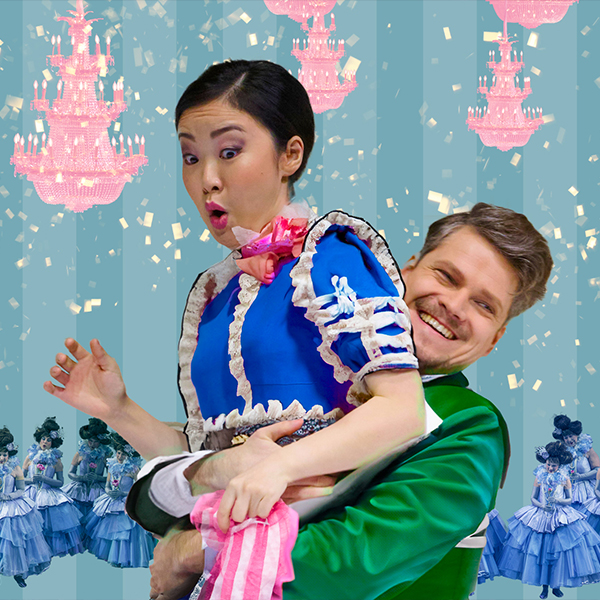
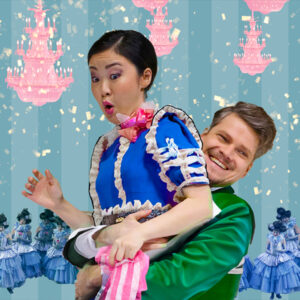 ***** Wolfgang Amadeus Mozart’s comedy The Marriage of Figaro (Le nozze di Figaro) has been delighting audiences for centuries, and if you see the production currently at the Lyric Opera of Chicago, you’ll know why. With a libretto that makes heavy use of all the tropes of old-fashioned comedies and a score that just feels happy, Figaro is a gentle escapist fantasy set in a bright, picturesque world. Or, at least, it is nowadays; the novel it was adapted from was a social satire that was heavily censored and derided by conservatives as sex-obsessed trash, and its premise could have easily gone in a much darker direction This production, revived by its original director, former Chicago Shakespeare Theater artistic director Barbara Gaines and conducted in a Lyric debut by Erina Yashima, captures the vitality of the 1786 opera’s original energy, resulting in the audience chuckling along for almost four hours.
***** Wolfgang Amadeus Mozart’s comedy The Marriage of Figaro (Le nozze di Figaro) has been delighting audiences for centuries, and if you see the production currently at the Lyric Opera of Chicago, you’ll know why. With a libretto that makes heavy use of all the tropes of old-fashioned comedies and a score that just feels happy, Figaro is a gentle escapist fantasy set in a bright, picturesque world. Or, at least, it is nowadays; the novel it was adapted from was a social satire that was heavily censored and derided by conservatives as sex-obsessed trash, and its premise could have easily gone in a much darker direction This production, revived by its original director, former Chicago Shakespeare Theater artistic director Barbara Gaines and conducted in a Lyric debut by Erina Yashima, captures the vitality of the 1786 opera’s original energy, resulting in the audience chuckling along for almost four hours.
The story begins shortly before the wedding of Figaro (bass-baritone Peter Kellner) and Susanna (soprano Ying Fang), both of whom are servants in the household of Count Almaviva (bass-baritone Gortdon Bintner). They have been given a bedroom next to the count’s, which Figaro takes pride in, but Susanna believes is because the count intends to take her for himself. Her reason for believing this, she discloses to Figaro, is that he is already pressuring her for sex. Almaviva has allies: Marcellina (mezzo-soprano Sarah Mesko) and her physician/lawyer, Dr. Bartolo (bass-baritone Nicholas Newton) want to prevent Figaro and Susanna’s marriage so Marcellina can enforce a loan in which Figaro is required to marry her if he defaults. But Susanna has a friend in the Countess (soprano Federica Lombardi), who wants her husband back, and is an adept schemer as well.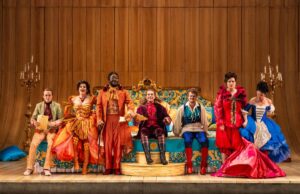
The story is extremely convoluted, and ultimately, following the path of each new intrigue doesn’t matter much. As is often the case with comedy, the same events with a different tone could have been depicted as horror. One character even compares Count Almaviva to the titular villain of Mozart’s next opera, Don Giovanni. However, Count Almaviva values his relationship with his wife and apparently isn’t willing to bring the full force of violence or coercion to having his way, and Figaro regards Marcellina as a mere annoyance, so nothing feels especially menacing. Instead, Figaro boldly sings about how he’ll make the count dance to a different tune (despite being one of the cast’s weaker schemers), Dr. Bartolo crows over how forcing Figaro into a marriage with the doctor’s own romantic partner will be fitting revenge for Figaro having foiled a different one of Bartolo’s sexcapades (?!?), the Count seethes over Figaro thinking he’s entitled to want things, and the Countess pines over her empty gigantic bed, all in amazing demonstrations of Mozart’s musical technique.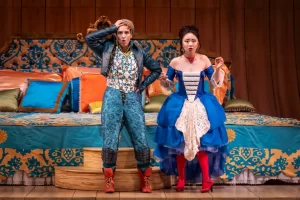
Barbara Gaines’s experience staging Shakespeare’s comedies is undoubtedly a major part of this production’s success. There’s an arch sensibility in the acting that doesn’t contradict the emotions of the music, which is mostly blustery or teasing and wistful. The latter is especially evident in the arias of Cherubino (mezzo-soprano Kayleigh Decker), a lovesick, horny teenage boy who seems to be kept in the Almaviva household as a pet and, along with the Countess, supplies the opera’s tender and hopeful sensibility. All of the singing actors are just as nimble physically as they are vocally, delivering a steady pace of gags that got laughs from the audience every few minutes. The set design by James Noone, costumes by Susan Mickey, and wigs and makeup by John Metzner also pop with clownish color and form a kaleidoscope of beautiful stage pictures. Mozart’s music often has a soothing effect, which I certainly experienced at the opening performance. Although the libretto is quite long and hard to follow, this production is packed with earnest joy, and is a good way to lift a play-goer’s spirit.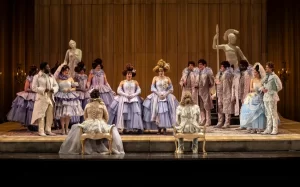
The Marriage of Figaro will continue at the Lyric Opera House, 20 N Upper Wacker Drive, Chicago, thru November 30, with the following showtimes:
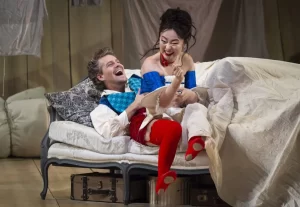 November 17: 2:00 pm
November 17: 2:00 pm
November 19: 7:00 pm
November 21: 2:00 pm
November 24: 2:00 pm
November 27: 2:00 pm
November 30: 7:30 pm
Running time is three hours and thirty minutes with one intermission. There is also a thirty-minute preview talk an hour before the show.
Performances are in Italian with English supertitles.
Ticket prices start at $42. The Lyric offers parking deals with Poetry Garage at 201 W Madison St. if inquired about in advance. To order, visit LyricOpera.org or call 321-827-5600.
To see what others are saying, visit www.theatreinchicago.com, go to Review Round-Up and click “The Marriage of Figaro.”





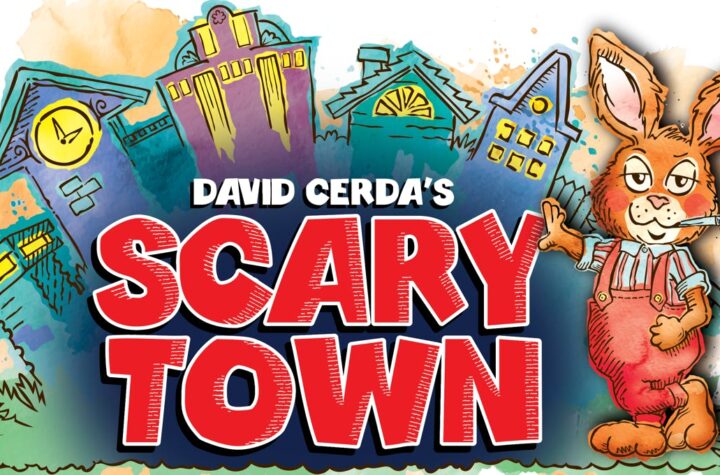
More Stories
“Henry Johnson”
“Scary Town” reviewed by Frank Meccia
“Translations”